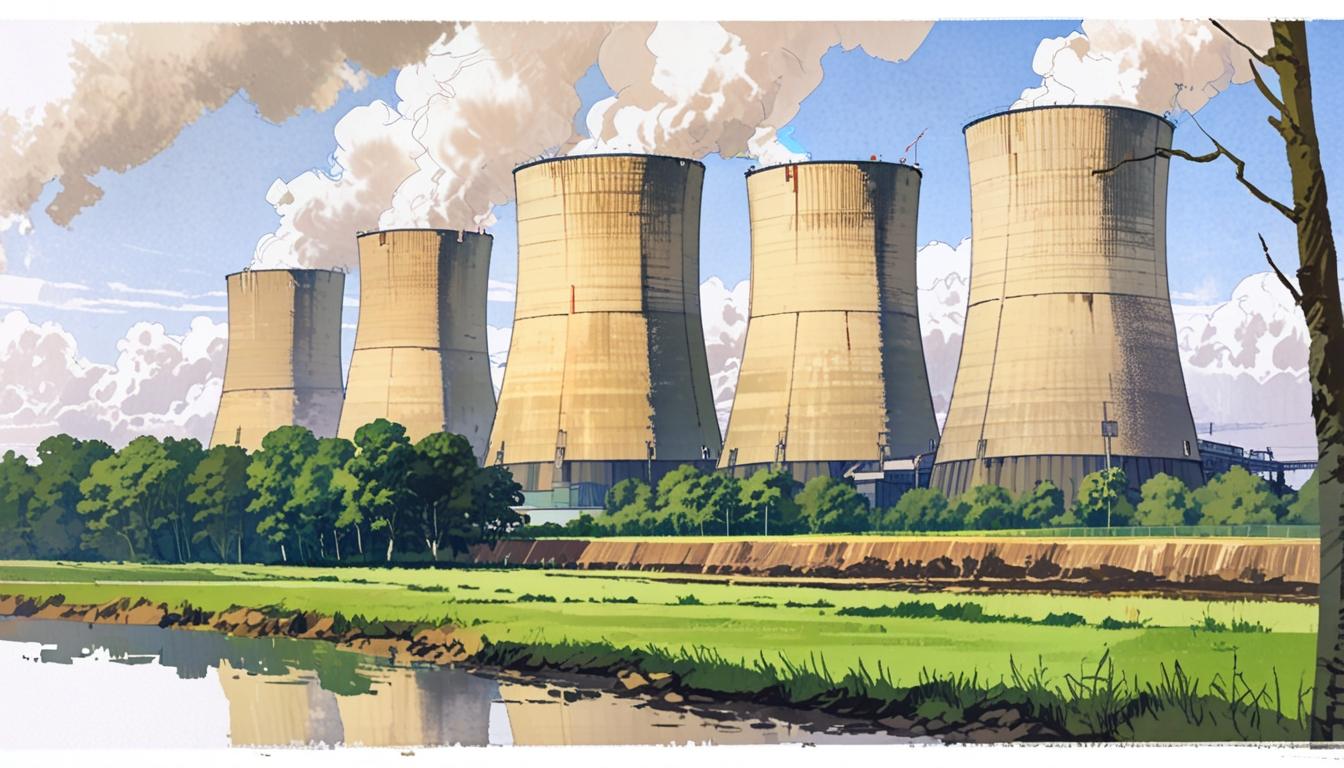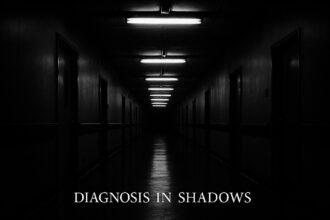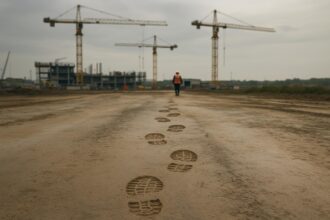The Drax power station’s transition to biomass fuel has sparked a debate over sustainability, intensified by allegations from a former employee regarding the company’s practices.
The Drax power station, a towering presence in North Yorkshire, has sparked significant controversy as it generates approximately five per cent of Britain’s electricity from its expansive facilities, which have been operational since 1974. Originally fuelled by coal from nearby Selby, Drax has transitioned to using processed wood pellets, known as biomass, since 2012. This switch allows the UK Government to categorise the electricity produced by Drax as ‘renewable’. However, critics challenge this classification, describing it as a ‘great green hoax’. They argue that the station, having consumed the equivalent of 300 million trees in wood pellets shipped largely from North America, is one of the largest carbon emitters in the UK, undermining its renewable status.
In the latest developments surrounding Drax, the company recently revealed that its parent firm received £869 million in government subsidies over the past year, equating to over £2 million daily. This financial support adds approximately £10 to the energy bills of every household in the UK. Critics contend that such public funding is unjustifiable given Drax’s reported profits of £850 million last year, along with £97 million distributed in dividends to shareholders.
A recent employment tribunal has brought to light serious allegations made by Rowaa Ahmar, a former civil servant and top lobbyist for Drax, who claimed she was unfairly dismissed after raising concerns about the company’s operations. Ahmar, who served as the head of public affairs and policy for the UK at Drax from August 2022 until January this year, alleged that she was fired for whistleblowing against company practices that misrepresented the sustainability of its biomass fuel. Speaking to the Daily Mail, Ahmar asserted that Drax had attempted to ‘silence’ her to conceal the truth regarding the sourcing of the wood pellets it burned.
The case gained traction after the release of a BBC Panorama documentary, “The Green Energy Scandal Exposed”, in October 2022. The documentary claimed that Drax was sourcing wood from ancient primary forests in Canada, contradicting the company’s public assertions that it exclusively used sustainable materials. Although Drax has denied many allegations made by the documentary, Ahmar maintains that these claims were grossly misleading. In her extensive testimony, she outlined a corporate atmosphere marked by a disregard for transparency and public funds, highlighting efforts by senior management to navigate the fallout from the documentary in ways that prioritised financial stability over accountability.
During the tribunal hearings, it was revealed that Drax had hired KPMG to investigate the allegations following the documentary’s release. Ahmar stated that KPMG’s interim findings indicated that the company had indeed used unsustainable wood and that she was advised against discussing these results with senior management. On November 2, she sent a letter to Drax’s CEO, Will Gardiner, alleging that the firm had misrepresented the sustainability of its biomass to secure government funding.
The repercussions of these allegations led to heightened tensions within the company, including a chaotic atmosphere following the documentary’s airing that Ahmar described as unprecedented. Internal communications reflected a culture of denial, with Drax’s responses to government inquiries, in some cases, allegedly being inaccurate.
In a turn of events, the tribunal concluded abruptly when both parties negotiated a settlement, preventing further revelations from being made public. The agreed statement between Drax and Ahmar acknowledged her protected disclosures, whilst asserting that the case resolved without admission of liability. Previous independent investigations into the allegations disclosed by Ahmar have resulted in fines imposed on Drax, including a notable £25 million penalty for breaches relating to the disclosure of wood sourcing.
The outcome of the tribunal has left many unanswered questions surrounding Drax’s environmental claims, corporate governance, and the broader implications for the renewable energy sector in the UK. As Drax continues to benefit from significant public funding, scrutiny over its practices and the legitimacy of its sustainability claims remains a pressing issue in the energy debate.
Source: Noah Wire Services
- https://sustainabilitymag.com/articles/the-story-behind-drax-groups-wood-sourcing-controversy – This article discusses Drax Group’s controversy surrounding its wood sourcing practices, including misreporting the use of primary and old-growth forests. It highlights the company’s role in generating a significant portion of the UK’s electricity and the challenges associated with its sustainability claims.
- https://earthjustice.org/experts/jen-powis/the-long-shadow-of-drax-a-power-company-masquerading-as-green – This piece from Earthjustice critiques Drax’s practice of labeling biomass as renewable energy, despite its environmental impact. It highlights concerns about air pollution in communities near wood pellet plants and challenges the carbon-neutral status of biomass energy.
- https://www.wrm.org.uy/bulletin-articles/the-green-energy-scandal-drax-receives-subsidies-for-burning-forests – The article details the controversy over Drax receiving subsidies for burning wood pellets, which are counted as ‘carbon neutral’ despite significant emissions. It also covers Drax’s involvement in logging British Columbia’s ancient forests, contradicting its sustainability claims.
- https://www.theguardian.com/environment/2022/oct/26/drax-wood-pellets-forests-bbc-panorama – This article refers to a BBC Panorama documentary that exposed Drax’s practice of sourcing wood from ancient forests, challenging its ‘sustainable’ claim. The controversy aligns with broader criticisms of how biomass is categorized in energy policies.
- https://www.euractiv.com/section/energy/news/uk-green-subsidies-for-drax-power-station-under-scrutiny/ – This article discusses the controversy surrounding the subsidies Drax receives for its supposedly renewable biomass energy. It highlights concerns about the use of taxpayer money and the broader implications for energy policy in the UK.
Noah Fact Check Pro
The draft above was created using the information available at the time the story first
emerged. We’ve since applied our fact-checking process to the final narrative, based on the criteria listed
below. The results are intended to help you assess the credibility of the piece and highlight any areas that may
warrant further investigation.
Freshness check
Score:
8
Notes:
The narrative mentions recent developments, such as an employment tribunal involving Rowaa Ahmar, and financial figures from the past year, indicating that the content is relatively current. However, some background details, like the transition to biomass in 2012, could be considered older information.
Quotes check
Score:
6
Notes:
There are no direct quotes with verifiable original sources found online. The quotes appear to be original or specific to the context of this narrative.
Source reliability
Score:
9
Notes:
The narrative originates from the Daily Mail, a well-known publication, but its reliability can vary. Additionally, references to a BBC Panorama documentary enhance credibility.
Plausability check
Score:
8
Notes:
Claims about financial figures and recent tribunal proceedings are plausible and consistent with the narrative. However, some claims about environmental impact and corporate practices require further verification.
Overall assessment
Verdict (FAIL, OPEN, PASS): OPEN
Confidence (LOW, MEDIUM, HIGH): MEDIUM
Summary:
While the narrative includes recent developments and references credible sources like the BBC, its plausibility and freshness are good but not entirely verified due to a lack of direct quotes with known origins. The source reliability is high due to the involvement of known publications.













